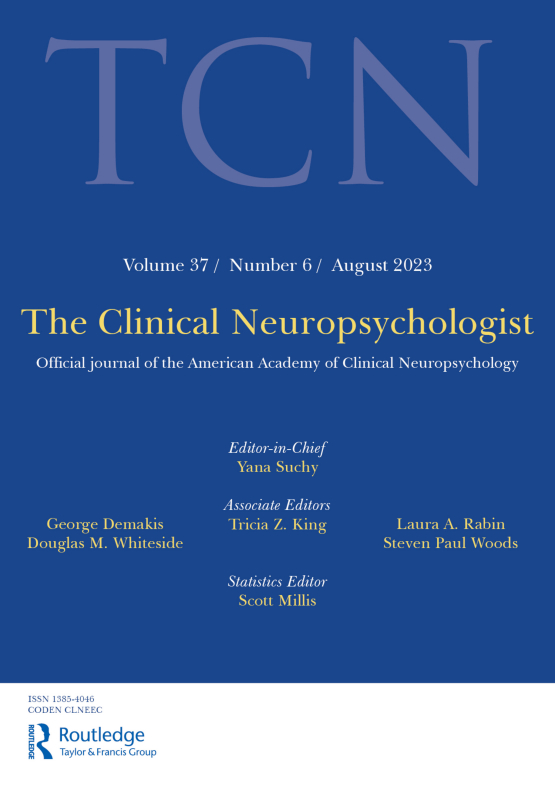Submit a Manuscript to the Journal
The Clinical Neuropsychologist
For a Special Issue on
Tele-neuropsychology
Manuscript deadline
01 October 2024

Special Issue Editor(s)
Ana C. Messler,
Boise VA Medical Center, Clinical Resource Hub 20
[email protected]
David D. Hargrave,
Montana VA Health Care System
[email protected]
Tele-neuropsychology
Call for papers: Special issue of The Clinical Neuropsychologist on tele-neuropsychology
Tele-neuropsychology (teleNP) has been defined by Bilder and colleagues (2020) as the application of audiovisual technologies to enable remote clinical encounters with patients to conduct neuropsychological assessments. This special issue of The Clinical Neuropsychologist (TCN) will highlight important contributions to science and policy surrounding tele-neuropsychology in an era following the end of the federal COVID-19 public health emergency declaration. While increased adoption was initially to mitigate COVID-19 transmission in response to the public health emergency declaration, there has been increased integration of tele-neuropsychology into routine clinical care in order to expand access to neuropsychology services (Messler, Hargrave, Trittschuh, & Sordahl, 2023). However, research on validity and normative data for teleNP, while slowly growing, has not seen significant expansion nor kept pace with implementation and dissemination of teleNP. This special issue invites contributions to help the field obtain a better understanding of both the validity-related and implementation science behind teleNP.
Special issue aims
We aim to sample a range of areas that are vital to the development of teleNP, and especially work that assesses validity of teleNP, compares teleNP to face-to-face evaluation, presents normative data for teleNP samples, and/or evaluates the quality of the studies to date. Our goal is to increase the number of studies investigating validity, reliability, normative data, access, patient outcomes, patient satisfaction, and dissemination.
Further development of technology and tele-NP adapted measures are also needed in this era of digitally informed care. There has been limited work on patient outcomes, metrics of access, impact on cost containment, larger scale implementation/dissemination, and aspects of healthcare policy and data that supported continued teleNP, and further work is crucial in all of these areas.
Looking to Publish your Research?
Find out how to publish your research open access with Taylor & Francis Group.
Choose open accessSubmission Instructions
Papers that go beyond positing models of delivery to presentation of outcome data are prioritized. Potential topics include but are not limited to:
- Validity and reliability of tele-neuropsychology, comparisons of video-based and face-to-face neuropsychological testing
- Development of teleNP normative data
- Development of new measures for tele-neuropsychological evaluation
- Tele-neuropsychology and healthcare outcomes, including but not limited to hospital readmissions, reduced PCP contacts, patient/family/provider satisfaction, as well as cost studies and other aspects that support policy
- Tele-neuropsychology dissemination and implementation, especially to historically underserved populations including culturally and linguistically diverse individuals, rural areas
- Tele-neuropsychological evaluation of children and youth
Empirical studies and reviews are invited. Any systematic review papers should focus on aspects of teleNP other than validity and reliability to avoid overlap with an invited paper submission. Proposals for review papers should be submitted to the associate editors (Messler and Hargrave) before June 1, 2024. Manuscript deadline for all papers will be October 1, 2024. All papers will be peer-reviewed, and submission does not ensure acceptance. Submissions should follow the standard format of the journal and should be submitted through the manuscript submission portal. Please select "Special Issue on Tele-Neuropsychology” when submitting your paper to ScholarOne.
Expected publication date is the July 2025 issue.